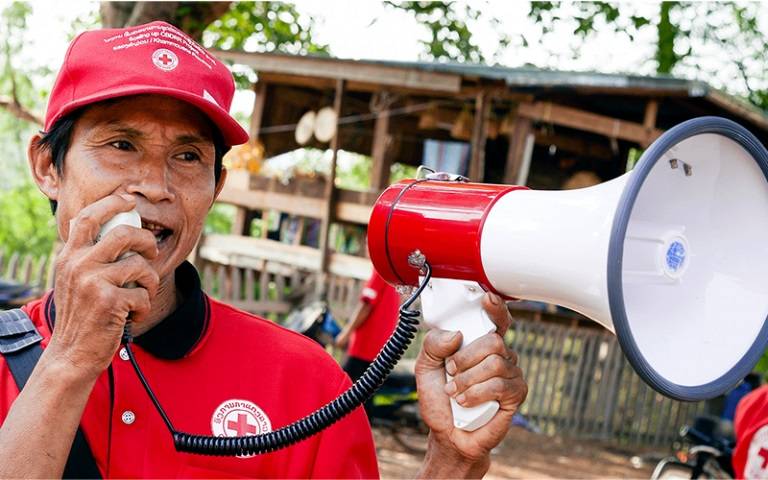INTERACT Crisis Translation project translates crucial information for communities
UCL’s Professor Federico Federici was co-investigator of a project aiding translation of information in crises, including in the 2019 Christchurch attack and in Wuhan during the COVID-19 pandemic.

28 April 2022
Professor Federici’s research has helped to keep people safe in crisis situations, by improving access to reliable information for communities who speak minority languages.
With the INTERACT project team, he designed crisis translation training materials to enhance communication in language combinations that are not supported by the translation market of the affected region (or not at all). The training introduces fundamental concepts to achieve culture and language-appropriate equivalences, to carry out terminological research, to monitor quality in the language transfer, to revise translated texts, and to use translation technologies.
The impact of the INTERACT Crisis Translation project
In three years, the project team trained 195 translators from culturally and linguistically diverse communities in New Zealand supporting and building capacity in the local Red Cross. Professor Federici trained 165 of them in different locations: Auckland, Palmerston North, and twice in Wellington; the INTERACT team trained 30. The training created a pool of translators who operated in the aftermath of 2019 Christchurch attack and during the 2020 COVID-19 pandemic response.
International health network Cochrane used these training materials to support 1,180 medical professionals who volunteer as translators. The materials support non-professional volunteers joining Translators without Borders to translate into rare language combinations.
This training provided support to meet the urgent needs for multilingual communication of the Municipal Government of Wuhan, Hubei Province, China during the early phase of the COVID-19 outbreak (26 January 2020). Wuhan’s Crisis Communication Manager used INTERACT training materials and research in his crisis communications strategy to inform non-Chinese speakers of public health risks related COVID-19.
International Network in Crisis translation – Recommendations on policies was published on the United Nations Office for the Coordination of Humanitarian Affairs (OCHA) site ReliefWeb in January 2020, which in the first six months of 2020 had 7.5 million users.
Research synopsis
Crisis Translation Training as Risk Reduction: improving practice in New Zealand Red Cross, international organizations, and municipal government in Wuhan, China.
The INTERACT Crisis Translation project, of which Professor Federici was Co-I, designed training materials to aid translation of crucial information in crises, impacting crisis response in NZ in the aftermath of the 2019 Christchurch attack, and in Wuhan during the early phase of Covid-19 pandemic.
Links
- Prof Federico Federici - Iris Profile
- UCL School of European Languages, Culture and Society
- UCL Faculty of Arts & Humanities
- Faculty of Arts & Humanities - REF 2021
Image
- Image credit: The International Federation of Red Cross
 Close
Close

